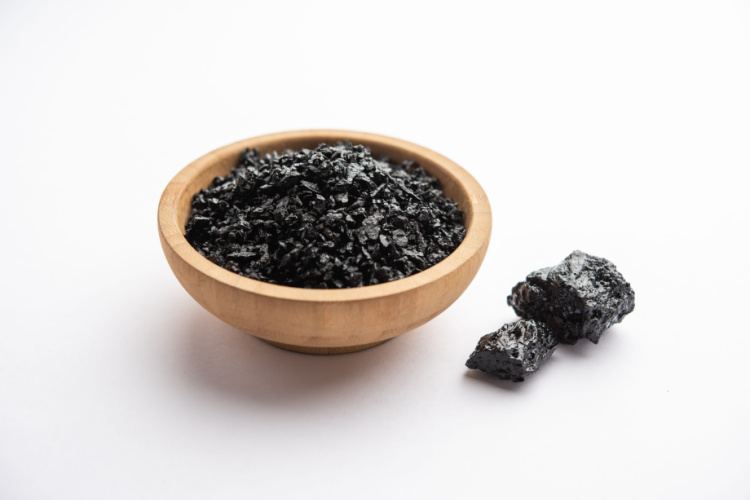Introduction
In the realm of natural supplements and traditional medicine, few substances have the storied history and powerful reputation of shilajit. This enigmatic resin, often referred to as “rock sweat” or “mountain tar,” has been a cornerstone of Ayurvedic medicine for centuries. But what exactly is shilajit, and why has it captivated the interest of health enthusiasts and researchers alike?
What is Shilajit?
Origins and Composition
Shilajit is a sticky, tar-like substance that oozes from rocks in high mountain ranges, most notably the Himalayas. This organic material is the result of the decomposition of plant matter over centuries, compressed and preserved by layers of rock and earth. It is rich in fulvic acid, humic acid, and over 85 minerals in their ionic forms.
The Discovery
The use of shilajit dates back to ancient times, with records of its application in Ayurvedic texts for over 3,000 years. It was discovered by local tribes who noticed that animals like monkeys, who consumed the substance, exhibited remarkable strength and vitality.
Health Benefits of Shilajit
Boosts Energy Levels
One of the most celebrated benefits of shilajit is its ability to enhance energy. Its high fulvic acid content helps in the efficient transport of nutrients into cells, boosting energy production at the cellular level.
Enhances Cognitive Function
Shilajit has been shown to support cognitive health, potentially improving memory, focus, and mental clarity. This is due to its neuroprotective properties and the presence of compounds that support brain health.
Anti-Aging Properties
Rich in antioxidants, shilajit combats free radicals and protects against cellular damage, which can slow the aging process. Regular consumption is said to promote longevity and overall vitality.
Supports Immune System
The wide array of minerals and nutrients in shilajit can bolster the immune system, making the body more resilient to infections and diseases. Its adaptogenic properties help the body cope with stress, further supporting immune function.
Enhances Physical Performance
Athletes and fitness enthusiasts often use shilajit to enhance physical performance. It helps in reducing fatigue, increasing stamina, and accelerating recovery post-exercise.
Promotes Heart Health
Shilajit is believed to support heart health by improving circulation, reducing cholesterol levels, and preventing the buildup of plaque in arteries. These benefits can help reduce the risk of heart disease.
Regulates Blood Sugar Levels
For those managing diabetes, shilajit can be a beneficial supplement. It has been shown to improve glucose metabolism and help regulate blood sugar levels.
How to Use Shilajit
Forms of Shilajit
Shilajit is available in various forms, including resin, powder, and capsules. The resin form is the purest and most potent, while the powder and capsules offer convenience.
Dosage and Consumption
The recommended dosage of shilajit can vary, but generally, a pea-sized amount of resin or a small scoop of powder is advised. It can be dissolved in warm water, milk, or added to smoothies. Capsules should be taken as per the instructions on the product label.
Safety and Precautions
While shilajit is generally safe for most people, it’s important to purchase it from reputable sources to avoid contaminants. Those with certain health conditions or who are pregnant or breastfeeding should consult a healthcare provider before using shilajit.
Conclusion
Shilajit stands as a testament to the wisdom of ancient healing practices. Its myriad of health benefits, from boosting energy and cognitive function to supporting heart health and the immune system, make it a valuable addition to modern wellness routines. As with any supplement, it’s essential to use it wisely and consult with a healthcare professional to ensure it’s right for you.

 Life style1 year ago
Life style1 year ago
 Life style1 year ago
Life style1 year ago
 Apps1 year ago
Apps1 year ago
 Fashion1 year ago
Fashion1 year ago
 Life style1 year ago
Life style1 year ago
 Business1 year ago
Business1 year ago
 News1 year ago
News1 year ago
 Business1 year ago
Business1 year ago













